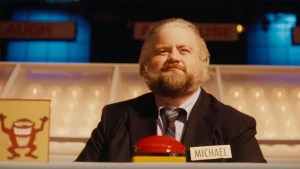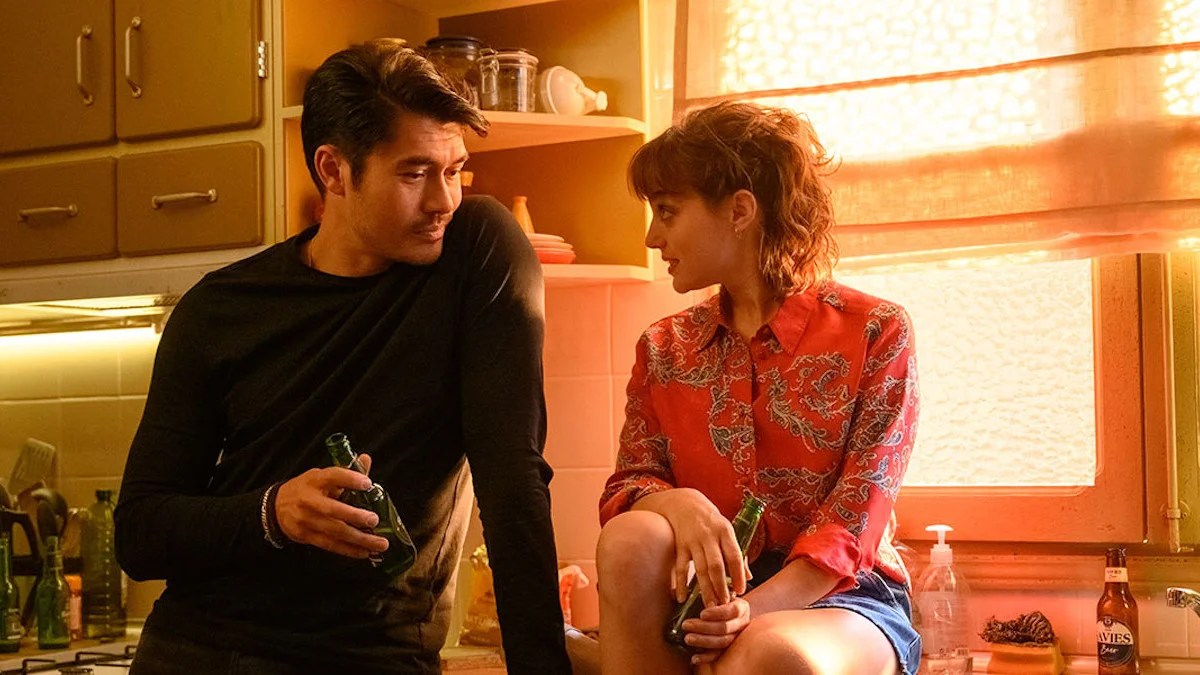Hollow Sci-Fi Strands Henry Golding
If you dreamed up a movie defined by empty creative choice after empty creative choice that completely collapses in on itself, it would probably look a lot like “Daniela Forever.”
Some of this is by design as it’s a film that sets out to challenge the foundations of its own premise, which involves a man enrolling in a treatment that allows him to have lucid dreams. When he then uses this to create a fake version of his girlfriend who has recently passed away, it initially plays as a derivative ripoff of the enduring “Eternal Sunshine of the Spotless Mind,” only in reverse. This is only the beginning as it gets much worse from there, becoming like the woeful recent misfire “The Greatest Hits” crossed with a far less imaginative, more insufferable version of “Inception.”
In addition to “Daniela Forever” ringing agonizingly hollow in the directions it takes us, it’s a quite literal film that’s misconceived from the outset, relying on blunt stylistic differences between the dream world and the real world that betray a lack of trust in the audience. Not only does the switching back and forth grow tiresome, but it also robs the experience of wonder or ambiguity.
The sci-fi drama, which premiered Friday at the Toronto International Film Festival, is all about Nick. Played by a stranded Henry Golding (“Crazy Rich Asians,” “The Ministry of Ungentlemanly Warfare”), he’s fallen into loneliness after the passing of his girlfriend. The titular Daniela, played by an utterly wasted Beatrice Grannò (“The White Lotus”) is never someone we get to know outside of her now grieving boyfriend’s memory. When he then gets the chance to bring this version of her back through his new lucid dream treatment, she’s a completely flat character, serving as a vacant vessel for him to hide his insecurities and struggles away in. In this dream world, Nick can have her smile up at him with nothing behind her eyes and do whatever he wants. Whenever she develops thoughts of her own, he erases them, alarmed that this fantasy life he’s built may soon come crumbling down with him in it.
This is all very much the point, but “Daniela Forever” is unable to successfully execute on it. There is real darkness around every corner, but the film shies away from actually facing it, offering forced redemption in the place of actual characterization or complexity. It seems to want to endear us to Nick, making the moments where his ugly side rears its head feel empty and half-baked. That the film repeatedly calls attention to the artifice of the dream world is fitting considering how little there actually is to the experience itself. We know that what Nick is doing is a toxic and corruptive thing, though “Daniela Forever” never does anything interesting with this idea, instead going back and forth between the two worlds without anything underneath the surface.
Putting aside how the way this happens visually is often rather poorly done with iffy visual effects, “Daniela Forever” fails to strike a balance between the two worlds in a way that creates useful juxtapositions. Both feel oddly and similarly narrow, primarily playing out in Nick’s apartment or on the street outside. Everything in the dream is something he has to have seen in real life, which is again something that feels lifted from “Inception,” though “Daniela Forever” follows this rule with fastidiousness that it never builds out its world in any remotely inspired way.
With little to wonder at in the way Nick’s dreams unfold, the overstretched story is one where we’re merely waiting for the shoe to drop. When it does, it lands with a dull thud.

That there are some jokes thrown in here and there that could elicit the lightest of chuckles is no point in the film’s favor either as they mostly undercut whatever serious ideas it may have. “Eternal Sunshine” benefited from the melding of writer Charlie Kaufman’s wry wit and director Michel Gondry’s mesmerizing visuals, all of which “Daniela Forever” can’t even bring itself to try to imitate, instead throwing out a fleeting line that seems to be referencing a specific image from that film before moving on.
This is a shame as writer-director Nacho Vigalondo has made perfectly good films in the past, namely his terrific 2007 feature debut “Time Crimes,” just as he has messy ones like 2008’s “Colossal.” The biggest disappointment to “Daniela Forever” is how tentative it is in comparison to his past work. It’s like watching a painter sketch out the basic ideas of what he wants to paint without picking up the brushes and beginning to go to work.
When this all then arrives at an ending that is the equivalent of having your cake and eating it too in terms of the fate of Nick’s soul, it just leaves a more sickening feeling in the stomach. After nearly two hours, the film just stumbles past a parade of half-formed thoughts about the sinister core of its premise and falls utterly flat with a saccharine, contrived conclusion.
“Daniela Forever” is afraid to ever dream big, leaving nothing more than a banal nightmare.









